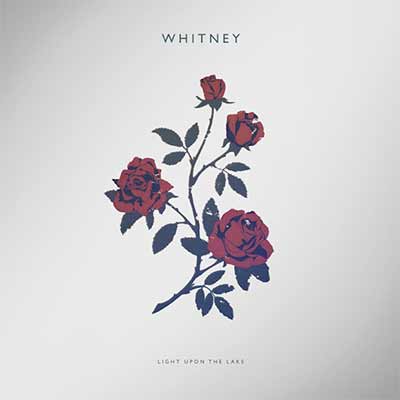Whitney’s debut record is a total surprise — yet perhaps it shouldn’t be. The band is indie rock’s version of a “supergroup,” featuring members of Smith Westerns and Unknown Mortal Orchestra. Like most supergroups, they’re more interested in playing through some jams inspired by tunes from the past than they are with making inspired new music — but that’s okay with me. When a record is as old-school as Light Upon the Lake, a lack of originality is almost a selling feature.
For all of the talk you’ll hear in reviews about how Light Upon the Lake takes inspiration from the Byrds, the Beatles, and soul music (and every critic ever is saying it), it still feels wonderfully refreshing. I think it’s because guitar rock — and guitar pop even more so — feels like a dying culture.
Take the opening verse of Dave’s Song. There are a couple things immediately at work here. Most notably, I think, are the arpeggios picked throughout. Stolen straight from country music, who stole it from guitar pop (who stole it from jazz, for what it’s worth), this style is uncommon in most rock these days. It’s a level of complexity above what we’re used to. It sounds good though.
The second notable thing is singer Julian Ehrlich’s voice, which will be immediately familiar to Unknown Mortal Orchestra fans. Frankly, he’s perfectly suited for this material. His sad-sounding, dreamy falsetto works better for this material than it does on the recent work from Unknown Mortal Orchestra.
Almost every song follows this strategy: Light Upon the Lake, No Matter Where We Go, The Falls, and so on. Many of these songs are clearly inspired by the band’s favourite old-school 60’s guitar pop. A lot of bands have done this, but few do it as well as Whitney.
There are, of course, a lot of soul influences as well. This is clear from the band’s brass section. It’s most obvious in the album’s more upbeat tracks. But when it all comes together perfectly, it congeals into these brilliant moments that stick with you.
For my money, Polly is the clear standout track here: the guitar pop and the soul-inspired brass come together perfectly, and Erhlich sings “I know in the past you left me with no heart; How cheap were the nights you used to keep me warm?”. In that moment, you know you’ve heard something special. And who it sounds like is unimportant, because it moves past it.
What makes Whitney’s debut so great is, despite knowing as well as we do who and what they sound like, they move past that and make us feel something.
